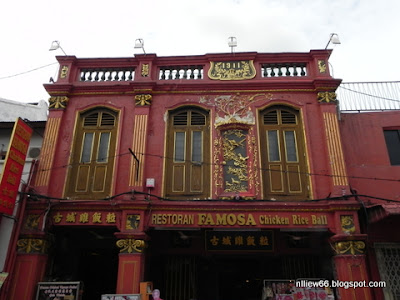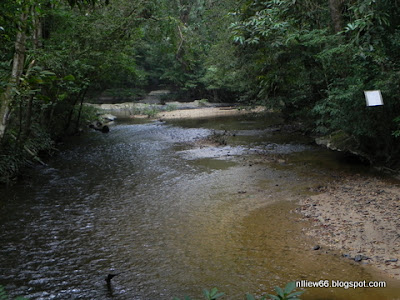In the past, I've visited Sungai Relau a couple of times but had never took any photographs of the place, well, at least in digital format. Last week, I've decided to give the place another go - firstly as a reconnaissance trip after so many years (last time was maybe year 2002) to see if the place is still intact. Secondly, I have such fond memories of feeding Kelah, something which is impossible in any place in Malaysia with wild fishes, left alone the Mahseers which are extremely intelligent and cautious of human presence. I think Sungai Relau is the only wild Kelah sanctuary in Malaysia and it being part of the Western point of Taman Negara does help - it falls directly under the jurisdiction of the Wildlife Dept and the river (I remembered) was monitored with CCTV at certain points and regular checks are made to curb illegal fishing. Anyone caught fishing illegally could end up with a RM800 fine and a night in the lockers - and that include certain parts of the Kechau River downstream.
Well, since its sources are all within the boundary of Taman Negara, Sungai Relau will never see the horrors of the chainsaws - something which is not the case elsewhere with the forest reserves which are managed by the states and as we took a drive through Gua Musang to the Cameron Highlands through Lojing - horrors greeted us everywhere. The landscape along the 70 kilometers or so from Gua Musang to Lojing is peppered with patches of badly logged areas interspaced with some forest patches here and there and the only thing that I can remember is the state of confusion, dust, muddy rivers and lorries pregnant with logs that sped through the narrow roads and destruction everywhere in the forests. I usually enjoy driving along rural roads but this drive was a true nightmare. Anyone without guts should never attempt the C8 (Kuala Lipis - Merapoh - Gua Musang) and the C185 (Gua Musang - Lojing). Lorries and cars flout whatever traffic rules there is to flout in the books in this part of the country. There is always a sense of sheer danger with the very unkept conditions of the trunk roads coupled with the difficult terrain and horrendous drivers everywhere. You are warned.

Upon arrival at Sungai Relau, after registering ourselves at the HQ (compulsory to have the rights to enter the park), the first cries that greeted us were from a pair of Hill Mynahs.
There are a couple of huge clump of wild figs laden with ripe fruits and those dropped were fermenting on the tarmac. Birds and squirrels raided the trees. Among them were scores of Black Starlings, Bulbuls, a lone hornbill, a Prevost's Squirrel (below), green flies (everywhere) and some butterflies. One of them is the Palm King (above).
The spot within the park area where the fishes can be seen fairly easily and be fed (in the past) with permissions from the rangers.
We were allowed to throw some fish pellets into the stream and the feeding frenzy began - hundreds of Kelahs (Tor tambroides), Tengas and Sebaraus came to gorge on the floating fish pellets and I even took a step into the stream to feed them - my presence in the water didn't even deter them from feeding. Those with reddish fins are Kelah. The dark bodied ones are Tengas and those with a black stripe are Sebarau. Not surprisingly, the succes of these three apex predators in the stream means only one thing - lack of diversity in species. These three species of fishes are the only one observed in the stream the two hours or so I was sitting quietly by the stream. I have not seen even one Rasbora or Ikan Sia swimming by...
The muddy water from another stream joins the dark waters of Sungai Relau.
Ixoras are quite common along the banks of the stream.
Strange rock formation shaped by water.
A damselfly
clear water
a gazebo along the banks of Sungai Relau
The bridge spanning Sungai Relau. 8 kilometers up the hills and it's Sungai Juram. It's a campsite devoid of any modern ammenities accessible only by tracking or 4WD and also serves as base camp to Gunung Tahan (apparently nearer from here). There is a bend with deep waters and the services included (saw on the brochure) swimming and diving with Kelah (huge ones).
The same squirrel later found feeding on wild cherries.
Limestone outcrops are common in this area










































































